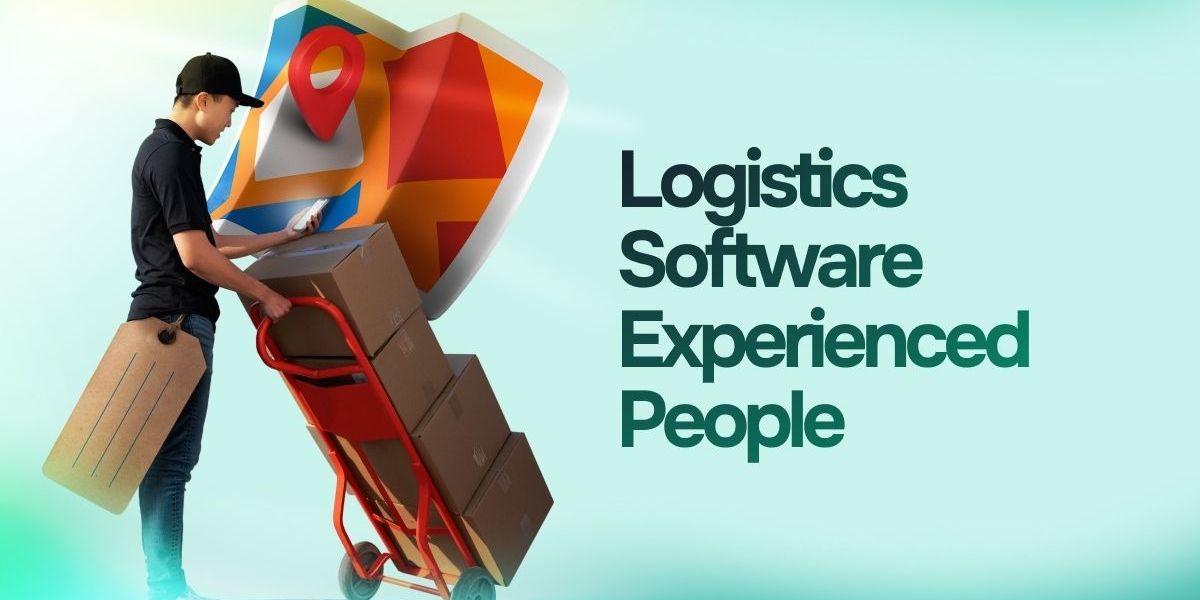
The Devil, the Details, and the Delivery Lane There’s this great old saying: “The Devil knows more because of his age than because he’s the Devil.” Translation? Book smarts only get you so far. You can have a photographic memory, a PhD, or the cleanest code in the repo—but if you haven’t been out there, getting your hands dirty in the field, you’re missing something critical: lived context.
And logistics? Logistics runs on context. Not theory. Not just abstraction. The same applies when you’re building software for logistics. Developers—brilliant as they are—can write clean, scalable code. But if they’ve never dealt with port congestion in Antwerp, warehouse labor shortages in Hamburg, or customs weirdness at the Norway border? That code won’t cut it.
In this piece, we’ll explore why logistics software development in 2025 absolutely needs domain experts giving their ounce of wisdom in the process, not just in QA or advisory roles, but at the heart of the build. We’ll dive into what domain expert roles and responsibilities actually look like, how they work with devs, and why leaving them out is a very expensive mistake.
Logistics in 2025: It’s Complicated. Really Complicated.
In case no one’s said it lately: logistics is hard. In 2025, it’s a cross-functional, real-time, regulation-heavy minefield. Between tightening sustainability goals, AI-integrated fleet routing, real-time visibility expectations, and escalating cross-border complexity, building tools for this environment takes more than technical know-how.
You can hire world-class developers, drop them into a sprint cycle, and still end up with software that feels…off. That’s because logistics problems don’t live neatly inside Jira tickets. They live in 4am port arrivals, in trucks rerouted last minute because a driver hit a low-emission zone, in customs documents that need to be auto-attached but formatted differently for Belgium and France.
Without domain experts, these subtleties are missed. And that design flaw becomes a business risk.
The Developer Blind Spot
Most developers are problem-solvers. They ask the right questions: What are we building? Who’s it for? What are the constraints?
But if the answers they’re getting come from folks without direct logistics expertise—or worse, marketing slides—they’ll end up solving the wrong problem beautifully. That’s why having a domain expert in software development is a safeguard against these biases. Their experience keeps the product grounded in operational reality.

What Is a Domain Expert in Software Development?
A domain expert isn’t just someone who knows the industry. It’s someone with deep, lived experience in the environment in which the software is meant to be deployed. In logistics, this can include:
Supply chain analysts who’ve modeled multi-country freight movement
Fleet operations managers who’ve optimized last-mile routes
Logistics consultants with experience designing SOPs for 3PLs
Customs clearance experts who actually understand regulatory APIs and documentation
Domain Expert Roles and Responsibilities in Logistics Tech Projects
The contribution of a domain expert is more than just “sounding smart in meetings.” They are advisors who work hand in hand with the software developers. Their fingerprints should be on every layer of the product. Key contributions include:
Shaping product requirements with operational logic, not assumptions
Identifying edge cases that devs might miss (for example, part-load shipments, multi-modal legs, or warehouse overflow protocols)
Translating legal/compliance frameworks into usable features (like customs documentation flows, fleet maintenance schedules, or environmental tracking logic)
Acting as user advocates, helping ensure the interface makes sense to dispatchers, not just product managers
Without this input, it’s easy to design for an imaginary user who doesn’t actually exist in the field.
When Domain Experts Are Left Out: What Goes Wrong
Now, let’s look at what happens when domain experts aren’t at the table.
Misaligned workflows: Dispatchers clicking through four different screens to schedule a single shipment.
Non-compliant features: Customs forms missing essential info. No audit trail for emissions tracking.
Integration headaches: New systems that don’t talk to existing TMS or WMS platforms, requiring manual re-entry.
Low adoption: End users reject the software because it doesn’t mirror how they actually work.
And here's the kicker: most of these issues aren't technical bugs but conceptual gaps.
The High Cost of Rebuilding Around Reality
When dev teams skip logistics expertise, the fix usually comes later. Much later. After deployment. After complaints. After customers start leaving.
Rebuilding flows to reflect operational reality takes time—and usually a rewrite. At that point, hiring a domain expert would’ve been much cheaper than rebuilding an MVP no one wants to use.

How Domain Experts and Developers Collaborate Effectively
So, how do you actually get this working in practice? It all starts with structure.
The most successful logistics software teams treat domain experts as co-builders, not occasional consultants.
Best Practices for Cross-Functional Teams
Early alignment: Bring in domain experts during discovery, not just validation
Shared artifacts: Use flow diagrams, real-life ticket walkthroughs, and annotated field reports
Agile co-planning: Let domain experts help define what “done” means, especially for operational flows
Tools and Rituals That Make It Work
Joint backlog grooming sessions—reviewing upcoming stories together to identify real-world gaps
Ride-alongs or shadowing—developers spend a day with warehouse ops or in dispatch rooms
Embedded workshops where field teams sketch how they’d ideally complete a workflow
These small rituals create trust, and more to the point, build shared language between tech and ops.
Strategic Benefits of Embedding Domain Expertise
Including domain experts in your logistics software project is a competitive differentiator.
Real Results. Real Fast.
When domain expert roles and responsibilities are clearly integrated, companies gain:
Faster MVPs that solve actual problems, not theoretical ones
Higher user adoption, because interfaces make sense to those on the ground
Improved innovation, like load-balancing based on live dock capacity or automated customs prep
Stronger stakeholder buy-in, because field users feel heard and represented
And in a crowded market full of logistics tech startups and SaaS clones? These details matter. Deep domain integration becomes the thing that sets your product apart.
Logistics Software That Works Starts With People Who’ve Worked in Logistics
You wouldn’t ask a cardiologist to design a cargo plane. So why do we expect devs with zero logistics experience to design tools for dispatchers, freight brokers, or customs agents?
The truth is, the best logistics software is built not just with code, but with context. And that means getting domain experts—the ones who’ve actually navigated these processes—not just to review, but to shape and guide the entire development process.
Developers bring the structure. Domain experts bring the soul.







